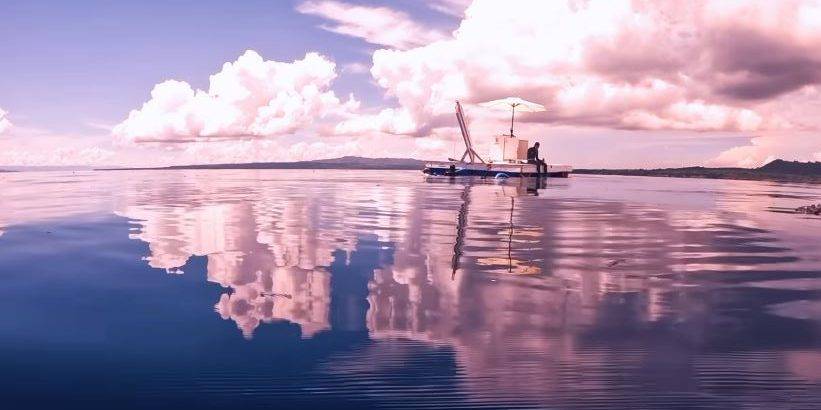How is it that Freediving is a safe sport? The question of safety for freediving is one that I get a lot from people that are hesitating to take the step to a first course. They are a bit scared, and it is understandable. Freediving is probably the only sport where you stop voluntarily using a vital function – breathing! Also, you are in an unusual environment, the water, which is associated with hazards in the “collective mind.”
There are numbers published regarding freediving and scuba diving accidents, but they usually encompass all snorkeling accidents, including those which occur outside of freediving practice as a sport. For example, car racing as a sport is very different from driving a car in everyday life. The accidents that happen in regular driving are not taken into account to determine whether car racing is dangerous as a sport or not.
In this article, I would like to talk about safety in freediving as a sport. Specifically, when practiced in a professional structure or after certification with a buddy, following the standard safety rules of the sport.
In this context, freediving seems to me like a very safe sport. I used to teach scuba diving before I discovered freediving, and I was way more stressed about my students’ safety than during a freediving course. If you have a proper setup with maintained equipment and we remove boat hazards, I feel that I would need to drown the student myself if I wanted it to be unsafe.
What I mean is, in recreational freediving, as far as you have a buddy paying attention and knowing what to do if you get hypoxic or blackout, you are totally safe. No risks of decompression sickness or lung overexpansion for a panicked student coming up too quick like in scuba diving. In the worst case, a student might black out, and you’ll need to rescue them.
Despite the term, blackouts are manageable situations. As for decompression sickness, in recreational freediving, it is very unlikely to happen if you respect proper surface intervals, regardless of your age or physical condition.
Actually, freediving is a safe sport when people learn that they should always dive with a companion and how to react in case of specific incidents from their beginner course. All agencies emphasize the need to dive with somebody and make people practice rescue skills during their beginner courses.
This is where freediving is making a significant difference in safety, and I would recommend anyone who wants to learn about it to do it with a certified instructor and not only through YouTube videos.
Another reason some people might think that freediving is unsafe is because of the idea of it becoming an extreme sport. But recreational freediving (let’s say diving until 30-40m) is not really extreme.
It is just how freediving has been presented so far. We have heard that sometimes athletes place their life on the line each time they go for a dive. I hope for their sake not! Even at a top level, you should *not* go for a dive if you feel like you’re endangering yourself.
Of course, there is always a risk, but the same can be said when you drive your car to go somewhere. That does not mean that you should feel you are putting your life in danger each time you go for a drive. I think this narrative might be good to attract sponsors and make documentaries or TV interviews, but it does not really reflect freediving as a sport.
When skiing or cycling, you expose yourself to more hazards than freediving. You can hurt yourself pretty bad if you fall. You can mitigate the severity by wearing a helmet, for example, but you are still more at risk, in my opinion than when freediving with a friend that knows what they are doing.
Just the perception is not the same because of the unknown part and the different environment. The media treatment is not the same either. Each time a snorkeler who had zero knowledge of freediving drowns, it is reported as a freediving accident and makes it in the news because of this “extreme sport” image.
Many people die skiing, car racing, moto racing, or even cycling every year, and it rarely makes it to the news.
In summary, Freediving is a safe sport if you (1) always have a companion who is trained for rescue and knowledgeable about the safety rules, (2) use maintained equipment (buoy, pulley system, lanyard), and stay within your limits make freediving a very safe sport, (3) learn and train with a certified instructor.
Freedivers are safe if they challenge themselves mentally and sometimes physically but not endangering their lives. Interested? Read our beginners’ guide to freediving.
Thibault Guignes
Based in Phillipines, Thibault is the owner of Camotes Freediving and holds the French record in Free Immersion (118m).



